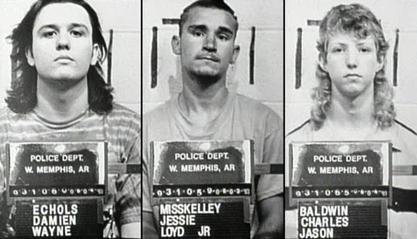The lead prosecutor now working the West Memphis Three lawsuit asked a judge to deny a new request to test evidence in the case.
Damien Echols, one of three people convicted of 1993 murders committed in West Memphis, asked the Crittenden County Circuit Court to allow the new testing in a petition filed last month. Specifically, Echols wanted the ligatures — the shoelaces used to tie the young victims’ arms and legs — to be tested with new DNA collection technology.
Keith Chrestman, the prosecuting attorney in the case based in Marion, said Echols’ request does not meet legal standards and “we must follow the law.” Among other things, Chrestman said a hearing on such matters must be held in the court where the conviction was entered, Chrestman wrote, and Echols’ conviction was handed down in Craighead County, not Crittenden.
In addition, he claims in his response to Echols’ request that, “Under statutory law, if new DNA testing — like [the] defendant seeks — excludes him, the circuit court has two options: grant a new trial or resentence. When a defendant has completed their sentence, it makes no sense to grant them a new trial. Nor does it make sense to resentence them. Here [the] defendant has completed his sentence. He’s no longer a prisoner. So for [the] defendant … habeas corpus writ isn’t an available remedy.”
Echols and his attorney want to test the evidence with new, M-Vac technology. The company behind the process said comparing its system to previous methods of extracting DNA samples from evidence is like comparing a push broom to a carpet cleaner.
However, Chrestman said using the new tech would require the court to determine whether or not it is a generally accepted testing method. Also, it must be proven that the new method of testing would not damage the evidence, as such evidence must be preserved, and the M-Vac method would “forever alter the physical evidence.”
Further, Chrestman said Echols must prove that testing the evidence would establish “actual innocence,” not to support a “theoretical defense.” He set out several pieces of “substantial evidence of [Echols’] guilt” shown to the jury at the original trial. For example, he said Echols knew facts about the case not available to the general public. Also, witnesses said that Echols had confessed to the killings and was near the scene at the time of the murders.
In response to Chrestman’s statement, Echols tweeted, “Arkansas continues to follow the path of corruption they set out on from the very beginning of this case.”
